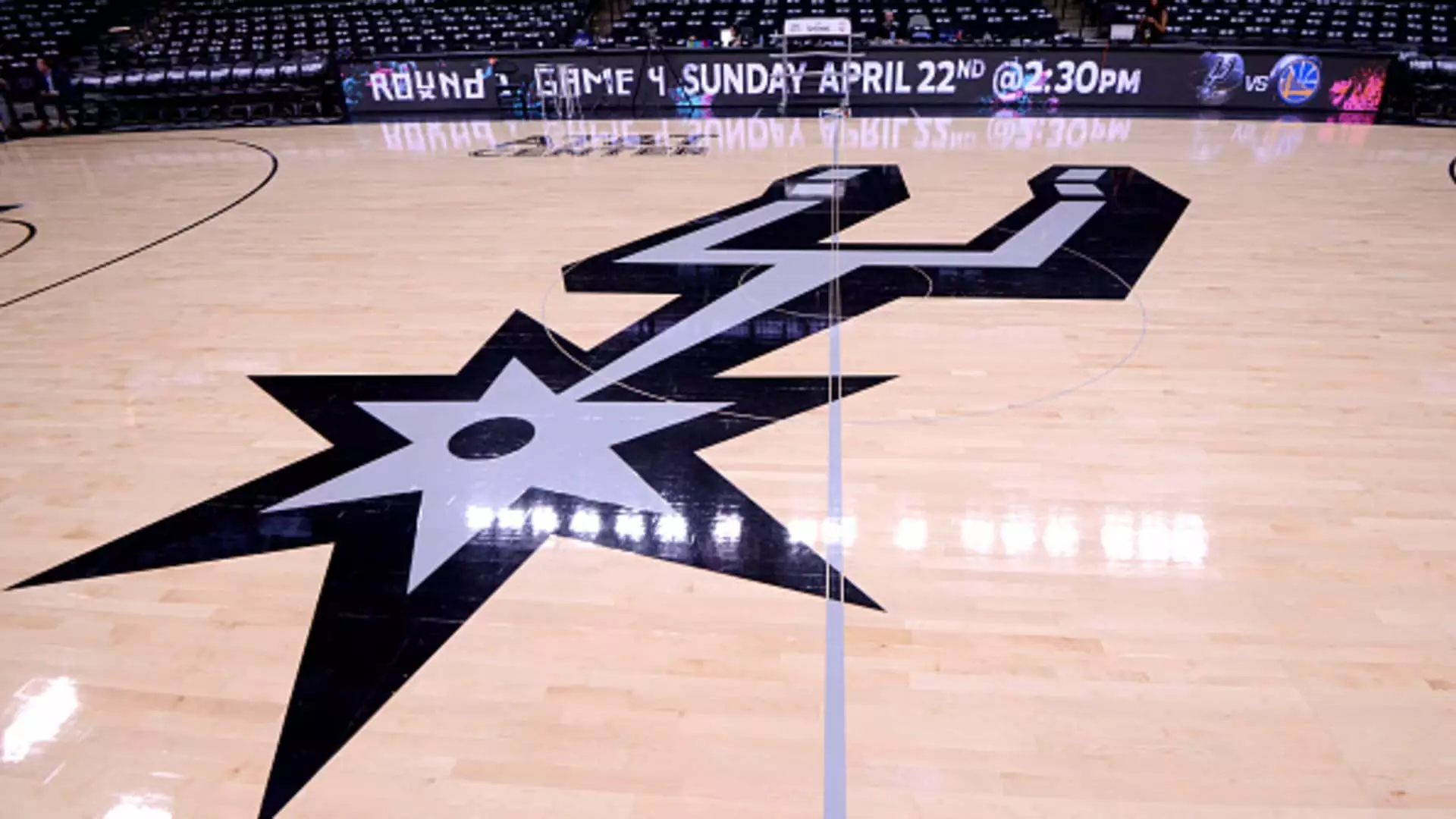The landscape of NBA team ownership is evolving, underscored by significant investment movements and a rising interest in the league’s franchises. One of the latest developments that underline this trend involves businessman Paul Viera, who is set to increase his stake in the San Antonio Spurs from 5% to 11%. This move comes at a strategically advantageous time, as valuations for NBA teams continue to climb amidst explosive media and franchise revenues.
In a noteworthy transaction, Paul Viera, the founder and CEO of Earnest Partners, recently acquired the remaining stake in the Spurs from cafeteria giant Aramark. Sources revealed that the deal, which is valued at $2.5 billion, allowed Viera to buy in at favorable terms, illustrating how partial ownership can offer financial advantages under certain conditions. This is particularly significant given how Aramark reported a loss associated with its stake in the Spurs, indicating a diverging interest between corporate and individual investors in the NBA landscape.
The business model of NBA team ownership is nuanced. Partial owners often acquire additional stakes at discounted prices, providing a unique entry point into team ownership while simultaneously allowing them less control over operational decisions. This business strategy often aligns with the increasing trend of high net-worth individuals diversifying their portfolios with sports franchises, viewing them as lucrative long-term investments.
The continuous surge in NBA franchise valuations can largely be attributed to the league’s recent $76 billion media rights deal. Such agreements not only provide financial security but also bolster the overall marketability of NBA teams. For instance, Junior Bridgeman, a former Milwaukee Bucks star, recently valued his transaction at $3.4 billion for a 10% stake in the Bucks—highlighting how demand and investment in teams are escalating rapidly.
The market valuations for team ownership reflect a broader trend in sports where franchises are increasingly viewed as incredibly desirable assets. This sentiment is not lost on investors like Viera, who are recognizing the dual potential for both financial returns and enhanced brand equity associated with being part of a storied NBA franchise.
Despite the Spurs’ recent struggles on the court, culminating in a dismal 22-60 record in the 2023-24 season, the franchise is in a state of transition that could change its fortunes both competitively and financially. The arrival of rising star Victor Wembanyama has injected new optimism into the organization’s long-term prospects. His presence on the team has the potential to enhance not just team dynamics but also future financial growth, as a winning culture typically attracts more fan engagement and sponsorship opportunities.
Moreover, the Spurs’ majority owner, Peter Holt, continues the family’s stewardship of the franchise, indicating a blend of stability and hope for generational changes within the club’s management and strategic decisions.
Part of the fascinating narrative surrounding Viera’s investment is the increasing diversity among NBA owners. As the NBA has actively sought to promote ownership diversity, figures like Viera, and former players like David Robinson and Grant Hill, highlight a shift towards more inclusive ownership structures within the league. This diversification is integral not only to the league’s cultural ethos but can potentially yield varied perspectives and approaches to team management.
The increasing presence of former players as owners is especially noteworthy. These individuals bring a unique understanding of the league’s dynamics and fan engagement strategies, which could translate into innovative approaches to operations and marketing.
As the NBA gears up for what seems to be a thrilling new chapter with increasing valuations and expanding ownership diversity, all eyes are now on franchises like the Boston Celtics. The impending sale of their majority stake is anticipated to set a new benchmark for the league, signaling the continued attractiveness of NBA franchises as investment opportunities.
Paul Viera’s strategic play in the Spurs exemplifies the optimism investors hold for the NBA, especially as ownership stakes are likely to prove lucrative in the years to come. As the league continues to evolve, the financial and cultural implications of these movements will be interesting to watch. Fostering genuine connections between franchises and their communities, while embracing diversity, may just be the recipe for long-term success in the NBA.



Leave a Reply